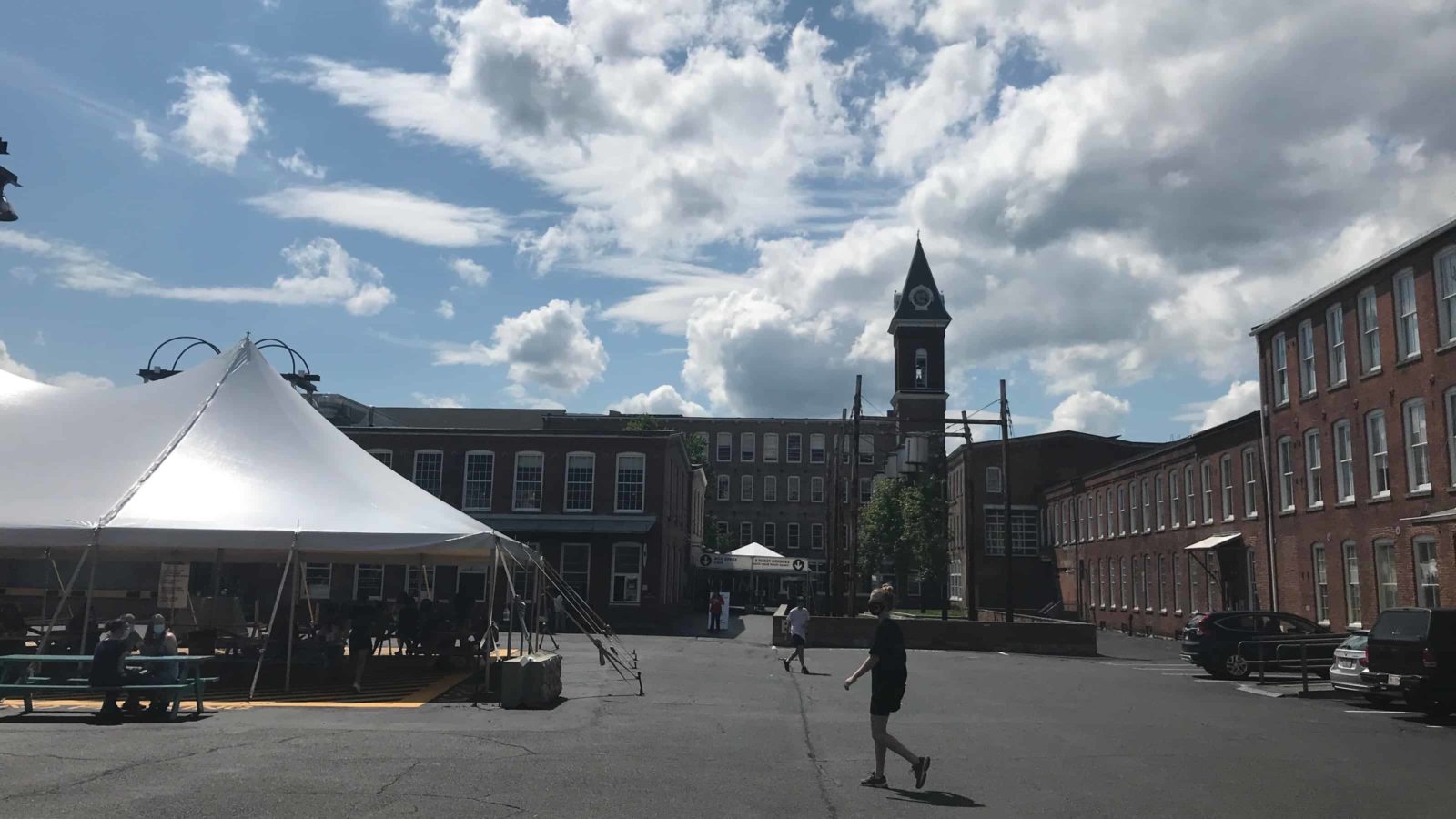The word for a spring and the word for an eye are the same in Arabic. The same word can mean an essence, a self … as though a river looks out of a pool of water.
“Our eyes produce water and reflect the images of our loved ones,” writes Nasser Alzayani in Watering the distant, deserting the near, his new work at Mass MoCA. “All the tears at Adhari have dried.”
He is offering a lament for the Ain Adhari, the Adhari spring in Bahrain. It fed farms and orchards of date palms for hundreds of years — and within the last generation, it is gone.
In songs and stories and sand, he asks how it would feel to stand at the lip of the pool at night and feel the water on bare feet, or touch the or touch the trunk of a palm tree that has grown near it for generations.
The music laps gently up the hall. A woman is singing in a low, liquid melody line. As I move into the room where it begins, I find a warm light and a red floor, and rows of tablets made of sand. Across them, raised letters have partly eroded away. I know they are letters in Arabic script, because curator Alexandra Foradas told me about them last winter. I’ve been waiting for months to see this.
Mass MoCA has just re-opened after the shut-down. This show was set to open in mid-March, and Covid-19 swept through a few days before. The museum closed for four months, as the state ordered, and it has just begun carefully to let people in.
The tablets are verses from a song. I can’t read them — the sand letters are deliberately blurred, and even if they were clear, I know barely enough to read Alzayani’s name. But he has offered translations on the walls, and transcriptions from interviews.
Mohamed Yousef Al Jumairi is singing to the spring like a woman gone from his life. His lyrics recall a time and place vividly — the way I might remember a night when I was deeply happy in the details of light sounds and touches, the friends I talked with, the feeling of a hand, the sound of water at night. He remembers birdsong and farmers sweating as they plant young trees.
In interviews nearby, farmers near the spring come again and again to government officials. Their massive palm trees are dying. In “a land of natural freshwater springs,” wealthier land-owners at a distance are siphoning off the water, until the old palms near the spring cannot survive.
Yousif Zainal is talking with his son. He knew the spring as a boy, and years later he returns to Bahrain.
“I got into my car one night,” he says, “and I was listening to Mohamed Yousef Al Jumairi’s song ‘Adhari, Where is the Water?’ When I got to the spring, I saw that it had no water at all. It was completely depleted. Dry. I felt as though something dear to me had died.’”
Standing here in a cloth mask, I feel that loss and fury at the indifference of those in power, at the slow grinding away of something that could have been saved. It seems to run through the new work at the museum today.
And with it runs a determination to preserve what is beautiful, and human, and natural.
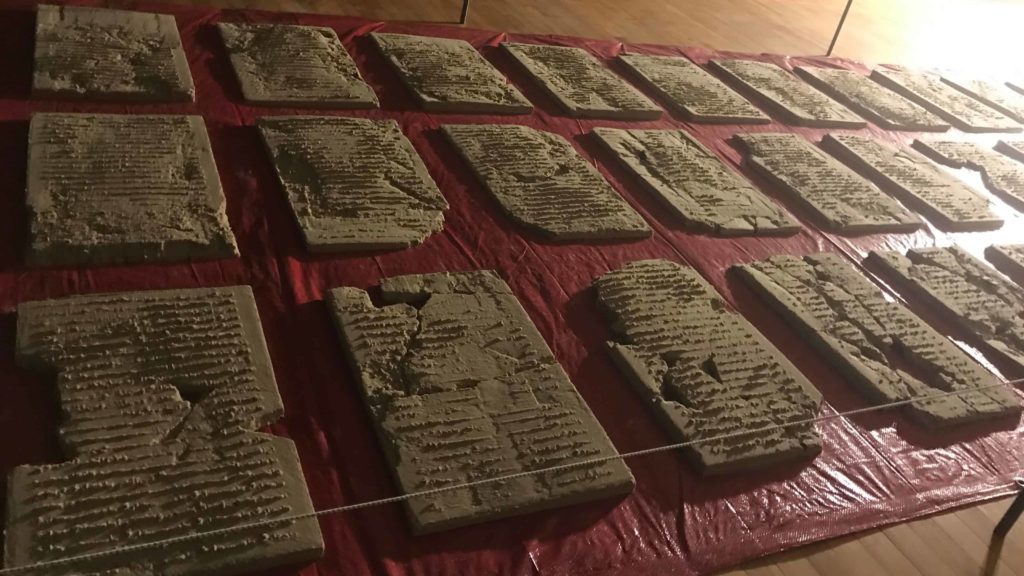
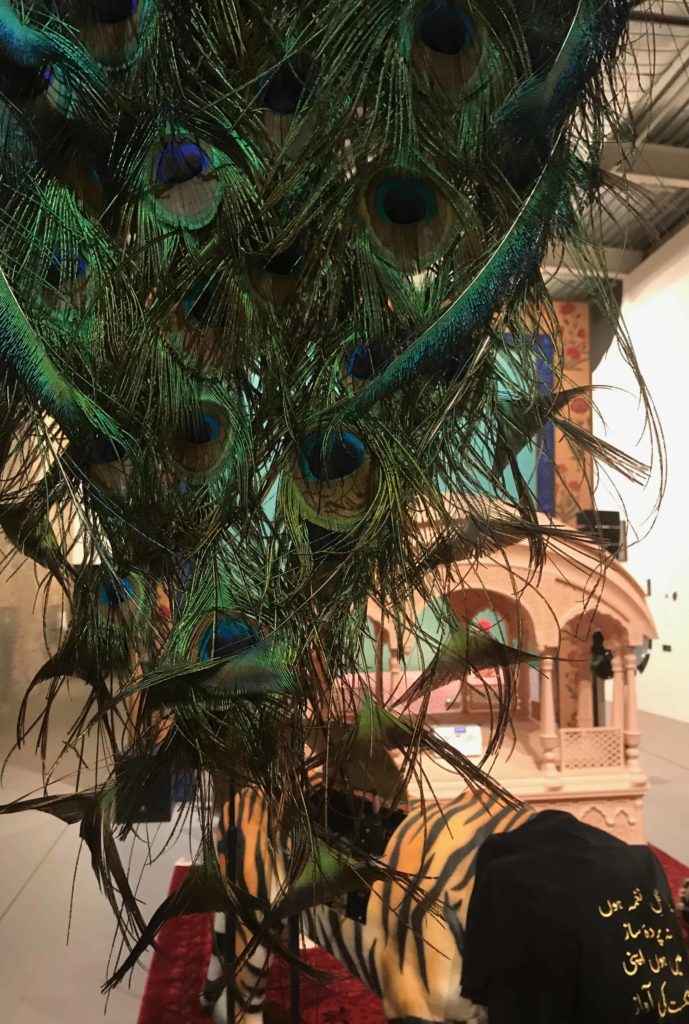
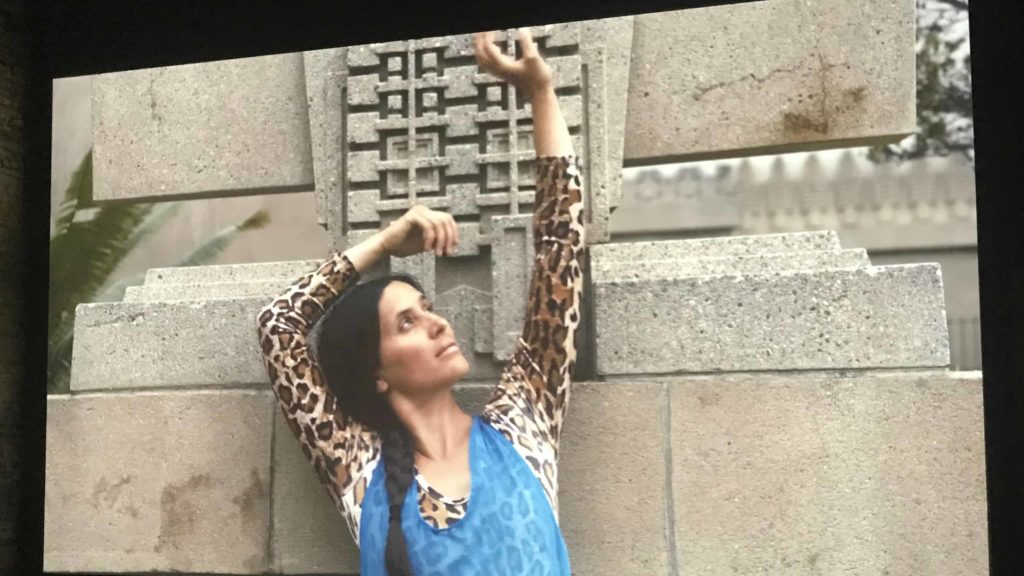
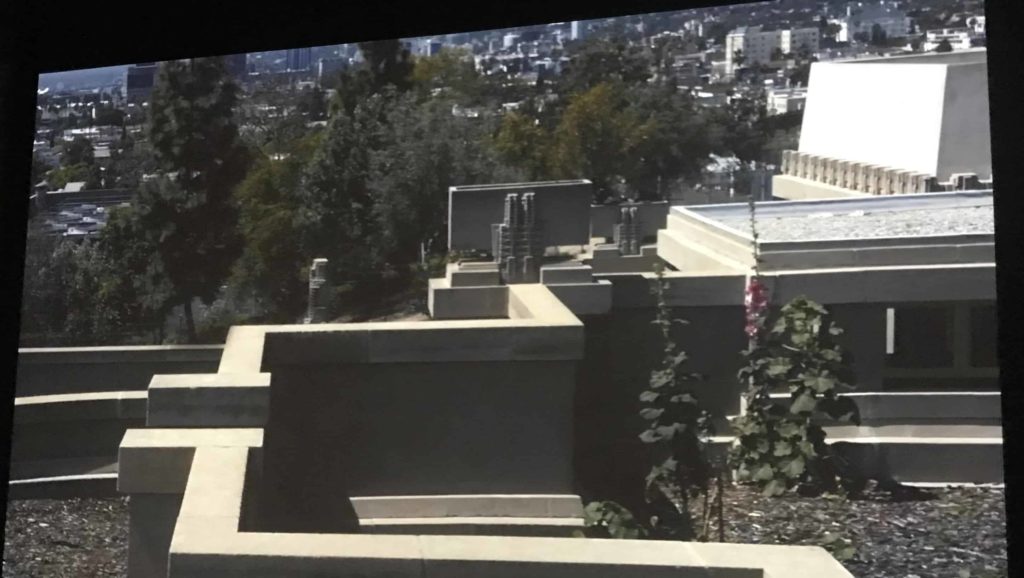
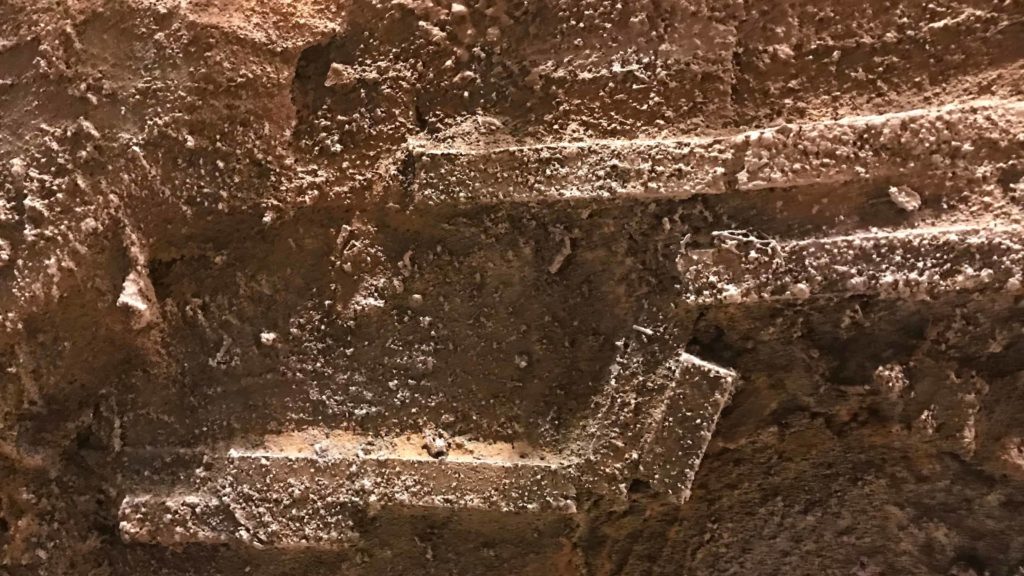
In Wendy Red Star’s Apsáalooke (Crow), Children of the Large-Beaked Bird, a leader of her nation says his name in his own language. She has found historic photographs of Peelatchixaaliash, a leader of the nation in the 1880s, and men and women he knew. He looks soberly out, his shoulders square and one hand resting on his knee.
This is a government portrait from a delegation that traveled from the Montana to Washington, D.C. The transcontinental railroad was set to cut through his people’s land as devastatingly as an oil pipeline, and the Union army, freed from the Civil War, had been attaching the sovereignty and independence of the nations of the Plains for more than 20 years. What can he have thought that day, looking at the camera for a photograph he likely never wanted?
I feel Red Star calling me to acknowledge the power of his thoughts. I may have no call to intrude on them. He and she are speaking to each other, Apsáalooke across the generations, and the lyrics from Hamilton are running in my head (from watching the new release with a friend this weekend) — ‘I don’t pretend to know the challenges you’re facing.’ But what they are willing to tell me, I want to hear.
Peelatchixaaliash was a bacheitche of his nation, a general … a good man. He led missions and night raids, scouted hostile territory, slipped the leads of horses in the dark and rode silently away. He was a decorated veteran from many actions. And he was negotiating through a long winter in the Capital.
Would he have understood the people who lived near the Adhari, and washed in its water, and sat on its banks holding hands, when they came time after time to talk to government officials while the spring and their fields died?
Alzayani appears as one of 10 artists in a new group show, Kissing through a Curtain,
looking into the idea of translation. It means, literally, getting an idea across. And I am thinking how vitally we need to talk.
All through the floor below, Blane de Saint Croix’s solo show, How to Move a Landscape, travels in the far north. A canyon fills a long hallway. A train seems to cart away permafrost and melting glaciers and boreal forest. A wall of fiber holds shadow like ice and compacted snow, and it looks as ancient as stone. But it is as friable as vanishing sea ice.
What can we hold onto from this shifting ground? What can we keep alive in the Adhari now but the beauty of the language and the sounds of the voices telling their stories?
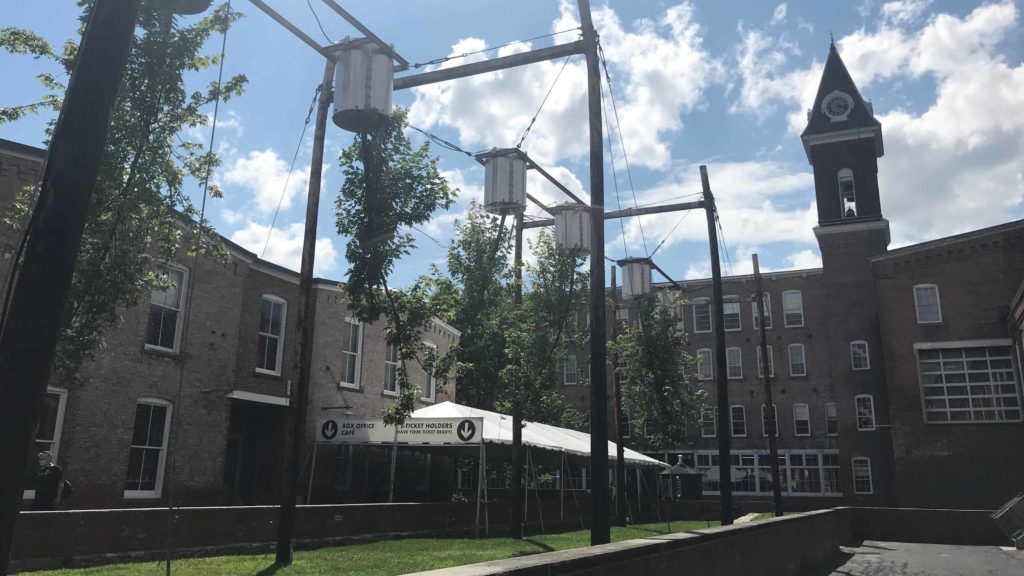
Mass MoCA welcomes visitors to the courtyard with the upside-down trees.

